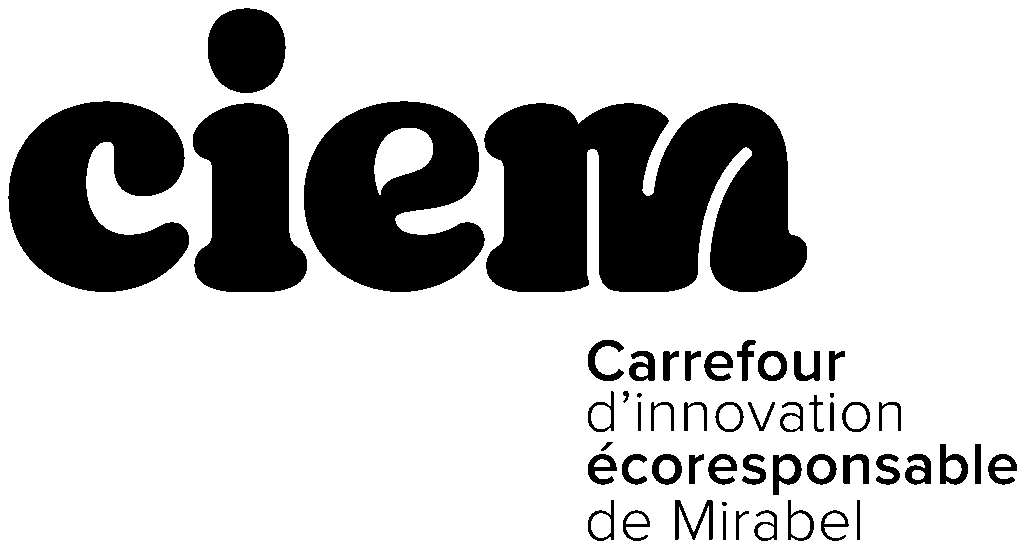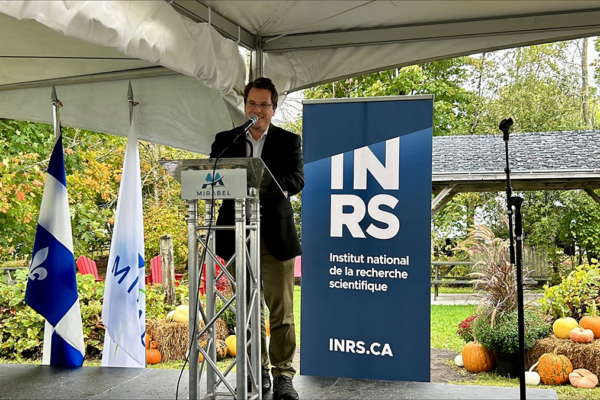The Municipal Research Chair for Ecological and Social Transition, supported by the City of Mirabel, was established to promote an exemplary eco-responsible transition in agriculture, strategic waste management, and water resource management. The research projects will be developed with a focus on community engagement and the enhancement of the territory.
Chairholders
The Municipal Research Chair is led by two co-holders who are committed to engaging directly with the territory.
More information about the teachers
The first co-holder is Professor Philippe Constant, a microbiologist who earned his bachelor’s degree from the Université de Montréal in 2003. He began his master’s in applied microbiology at the Armand-Frappier Santé Biotechnologie Research Centre of the Institut national de la recherche scientifique in 2003, before fast-tracking into a PhD program in 2004. He then completed a three-year postdoctoral fellowship in Germany at the Max Planck Institute for Terrestrial Microbiology, before joining INRS as a professor in 2011.
His research team focuses on three main areas:
(i) the role of the energy potential of trace gases in plant-microbe interactions that benefit soil health;
(ii) applied biotechnologies, with a particular emphasis on solid-state fermentation for the production of biomaterials, biogas, and biofertilizers;
(iii) applied ecology for crop protection in agricultural and viticultural sectors.
Professor Constant has been collaborating with the City of Mirabel since 2021 and has served as its Chief Scientific Advisor since 2024.
The second co-holder is Professor Kokou Adjallé, a physicist-chemist by training (bachelor’s degree from the University of Lomé, Togo). He earned a master’s degree in environmental sciences from the University of Liège in Belgium, followed by a PhD at the INRS Water, Earth and Environment Research Centre in 2009, and a postdoctoral fellowship (2009–2011) at the Lignocellulosic Materials Research Centre (CRML) at the Université du Québec à Trois-Rivières (UQTR). He then worked as a research professional at CRML for eight years before becoming a professor at INRS in 2019.
Professor Adjallé’s research areas include environmental biotechnology and green chemistry. Specifically, his work focuses on:
(i) the valorization of lignocellulosic residues within a biorefinery and circular economy framework;
(ii) the production of value-added bioproducts from fermentable residues;
(iii) the development of bio-based materials (adhesives, resins, and thermal insulation foams) derived from lignin and tannin.
Background
A joint initiative of the City of Mirabel and INRS, this Chair aims to be a true catalyst for change, bringing together researchers, citizens, and local stakeholders through research and knowledge transfer activities that address the current and future needs of the community.
Objectives
The Chair’s title reflects the concept of ecological and social transition, defining its mission to engage stakeholders across the territory (citizens, farmers, agronomists, businesses, and the City) around the agricultural sector. This mission will be realized through the protection of agroecosystems, the promotion of agriculture among citizens, and the enhancement of nutrient circularity from field to fork.
Five main research areas have been defined:
- Ecosystem Mobilization
Engage businesses, citizens, and all stakeholders involved in research projects (e.g., through the creation of communities of practice to mobilize and apply new knowledge).
- Strategic Management of Residual Materials and Wastewater
Diversify revenue streams and promote nutrient circularity from field to fork (precision composting, upcycling, political ecology).
- Regenerative Agriculture
Protect agroecosystems through diagnostics and the development of new solutions for soil health, water quality, and adaptation and resilience to global changes.
- Territorial Valorization
Highlight ecosystem services, the unique identity of the local terroir, and the culture and sense of belonging to the agricultural sector (incentives, green taxation).
- Technology Showcase
Disseminate research findings at both local and international levels.
Partners and collaborators
- Ville de Mirabel
- Consortium intersectoriel en écologie industrielle et agroalimentaire (CINÉIAG) de l’INRS




